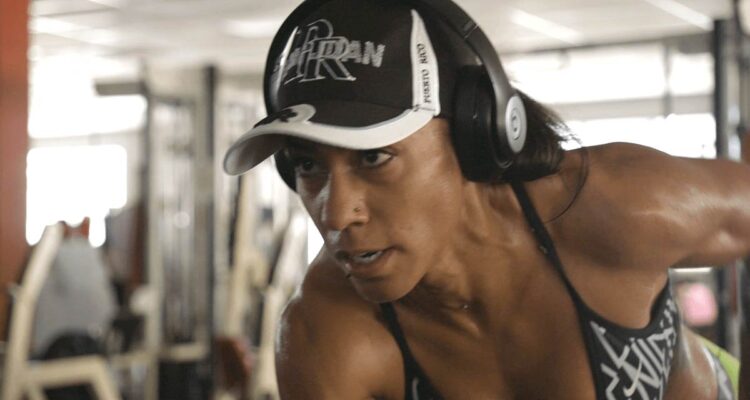Following its titular subject in the aftermath of the 2016 Pulse Nightclub Shooting, Maris Curran’s introspective documentary “Jeannette” is less about creating a comprehensive portrait of the massacre. Instead, the film zooms in considerably to showcase how Jeannette Feliciano, a lesbian Puerto Rican mother living in Orlando, reintegrates into society after surviving. Specific and thoughtful, Curran has chosen a fascinating subject to put at the center of a film that occasionally feels slight, but also leaves an indelible impression.
Throughout the film, the lingering trauma of the nightclub shooting manifests in quiet, less obvious, ways. Jeannette’s decision to get back into competitive body-building provides the narrative through-line that supports most of the film — as we see her training — but Curran resists neatly packaging her story within such a simplified framework.
Instead, the film often moves at the paces of her routine, sometimes zooming through days and weeks — especially when she visits family in Puerto Rico in the aftermath of Hurricane Maria — and just as often focusing on the minutia of her training regimen. Long shots of her working out, as well as motivating others as a trainer, dominate. Her gym provides both a support system and a place of refuge.
Mirroring this subjective approach, the film also eschews bigger, more emotional, beats. Instead, Jeannette’s disposition — articulate, focused, but nevertheless reserved — becomes the guiding principle for the film, as well. Often she talks about Pulse in brief segments, willing to give voice to what she went through, but also ready to re-focus her life on other things. As a result, Pulse ominously hangs over the film, often just in the periphery. When the widow of the shooter, Noor Salman goes on trial — and is eventually acquitted — it’s jarring not only for Jeannette and her friends, but also for a film that had, up until a point, avoided tackling the tragedy directly.
With such a subject at the center, and Curran’s decision to not editorialize, we are left to unpack the reasons for Jeannette’s behavior ourselves. The decision to train her son in boxing, as well as firearm safety, work as both singular moments of bonding, but also hint at the larger implications of how Jeannette is processing her role as a survivor. By the time that we arrive at the competition, it’s less important whether Jeannette wins or not, but more that she is willing to reintegrate back into her own life and can proudly put herself back on display on the stage. The final images — taking place at a club — are cathartic, as both the film and Jeannette finally let loose.
“Jeannette’s” verité approach is by design insular, reserved, and hyper-focused on its subject, which makes for a compelling character-study. But one also wonders what the cumulative effects might’ve been if Curran trained her camera on a more expansive roster of subjects — perhaps more on her fellow co-workers at the gym who were also at the nightclub. Still, though, as a specific observational testament to Jeannette’s resilience, it’s a small miracle of a film. [A-]

